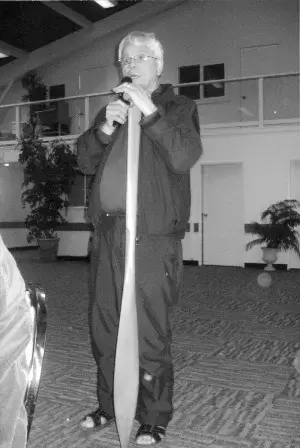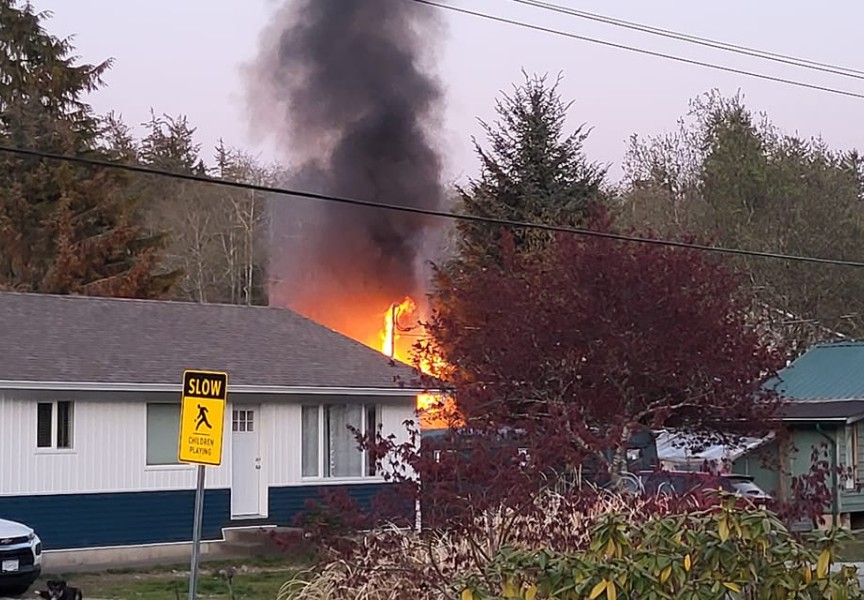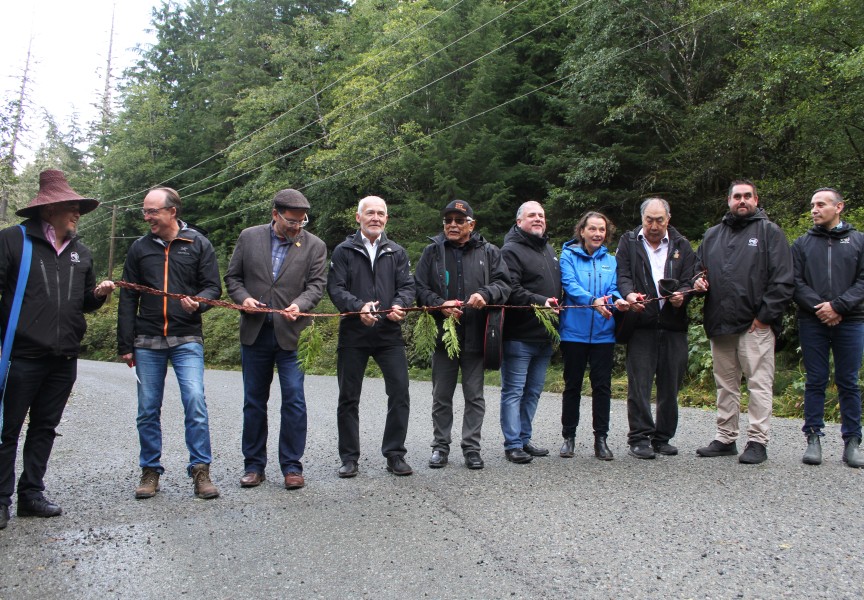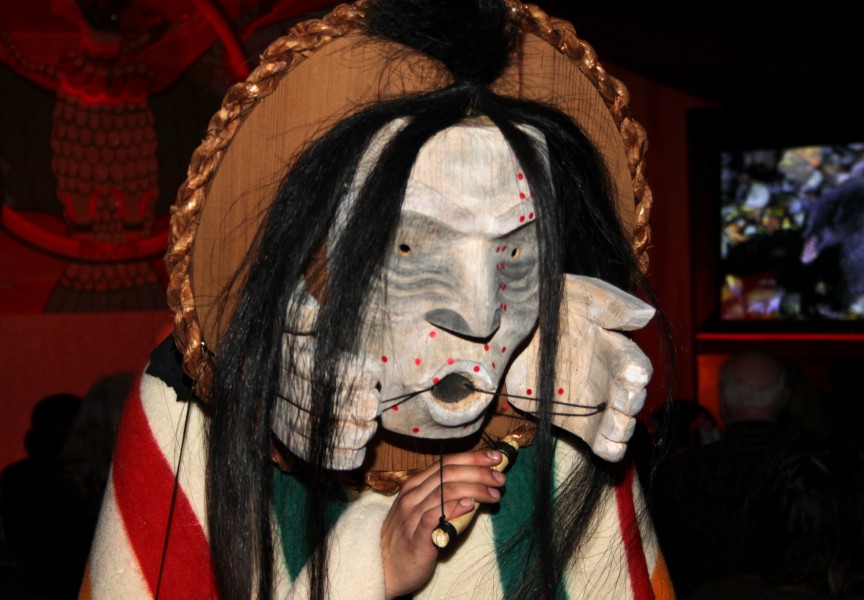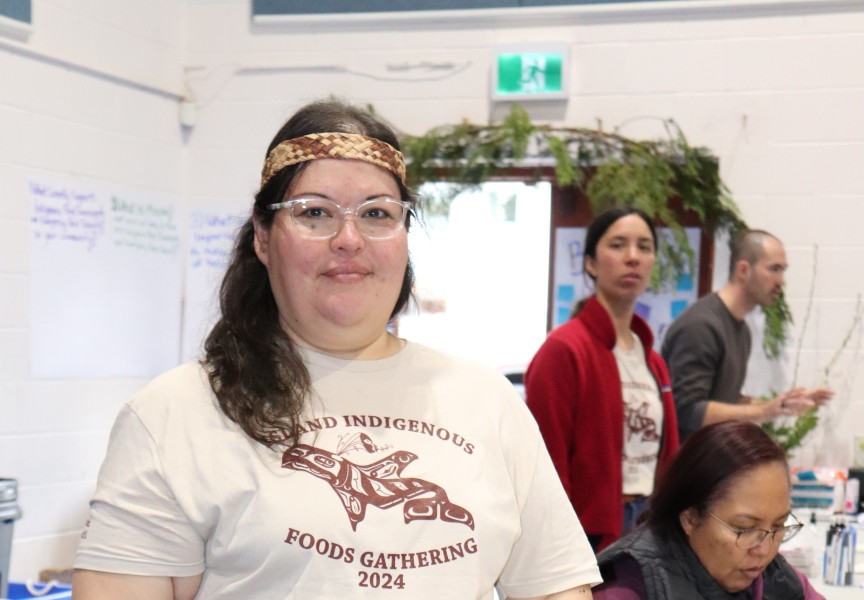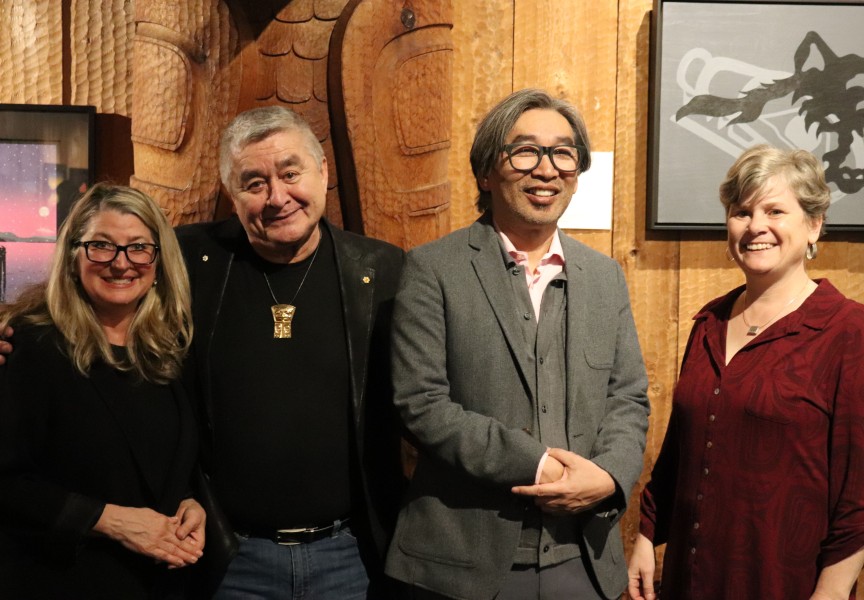Dozens of former residential and/or day school students attended a residential school meeting held at Tin Wis Resort on April 4. Former Opitsaht Day School students used the gathering to air their dissatisfaction over the fact that they are not included in the Residential School Settlement Agreement.
Former day school students argue that when Christie Indian Residential School closed, many of its former teachers simply moved to the nearby Opitsaht Day School, bringing with them their abusive ways.
Opitsaht Day School operated on Meares Island from 1957 to 1969. Former students came armed with a list, naming six former teachers who were Sisters of Immaculate Mary and four government employees who migrated from Christie Residential School to nearby Opitsaht Day School.
Nuu-chah-nulth Tribal Council (NTC) President Tom Happynook and Ken Young, special advisor to the National Chief of the Assembly of First Nations (AFN), were on hand to listen to the concerns and bring the message of the former students back to the AFN.
Happynook said they need to come up with a strategy to move the day school issue forward. “Although they didn’t stay (overnight at day schools) they still suffered the same abuse as those that were institutionalized in residential schools,” he said.
Tla-o-qui-aht First Nation, he said, is taking the lead in pushing for a strategy to get recognition and compensation for former day school students. People should be doing research, he advised. Who built the day schools? Who funded them? Who operated the day schools?
Happynook promised to write a letter that would include a resolution from the Nuu-chah-nulth nations urging the AFN to deal with the day school issue.
According to both Happynook and Young, someone has to file a class action lawsuit on behalf of former day school students. Until then, they will not be compensated for the years they spent in the day schools and nobody knows how long it would take to reach an agreement with the government on such lawsuit.
The AFN has a mandate to proceed on the day school issue. According to Young they already have a chiefs’ resolution, but he encouraged the NTC go ahead with their own, saying sometimes leadership needs a nudge.
“It’s a huge issue across Canada,” said Young. “Day school students are feeling left out; they went through physical, cultural and sexual abuse and haven’t been recognized or compensated by the government.”
Young spoke to the gathering about the settlement agreement, reminding them that day schools are not included in it. But former day school students who were abused at schools that were part of a residential school, like Alberni Day School, may apply for Independent Assessment Process (IAP).
“If they went to residential school classes but went home at night, they are not eligible for the CEP (Common Experience Payment) but they may apply for the Independent Assessment Process.”
According to the Indian Residential School Resolution Canada Web site, the IAP is[RTF bookmark start: }cont the new process to help former students settle their claims for abuse they suffered at Indian Residential School.
“The IAP replaces the former Alternative Dispute Resolution program that was previously used to settle claims. The IAP compensates former students for sexual abuse, serious physical abuse and certain other wrongful acts which caused serious psychological consequences for the individual. This compensation is available in addition to the Common Experience Payment.
The IAP application form is now available and can be found at www.residentialschoolsettlement.ca (external site) or at http://www.irsr-rqpi.gc.ca/index-eng.asp.
Awards under the IAP will range from $5,000 to $275,000, depending on the severity of the claim and the legal issues involved. More may be awarded if you also show loss of income.”[RTF bookmark end: }cont
In other residential school healing news, the federal government is inching closer to naming a chairperson and two commissioners to the Truth and Reconciliation Commission on native residential schools; work that critics say was do be completed several weeks earlier.
The naming of the $60-million, five year panel would launch the official work of the commission, which includes hearing from former students in a Canada-wide tour and an official apology from Canada.
It would mark the beginning of the healing process for former residential school students.
Indian Affairs Minister Chuck Strahl says the healing effort will take place sometime later this spring. The commissioners are to work on behalf of all Canadians to reconcile native and non-natives.
Margaret Eaton, legal assistant and cultural support for lawyer Scott Hall, reminded everyone of the importance of educating others about what went on at residential schools and the far-reaching impacts. She implied that educating others would bring more opportunities for survivors.
By Denise Titian

